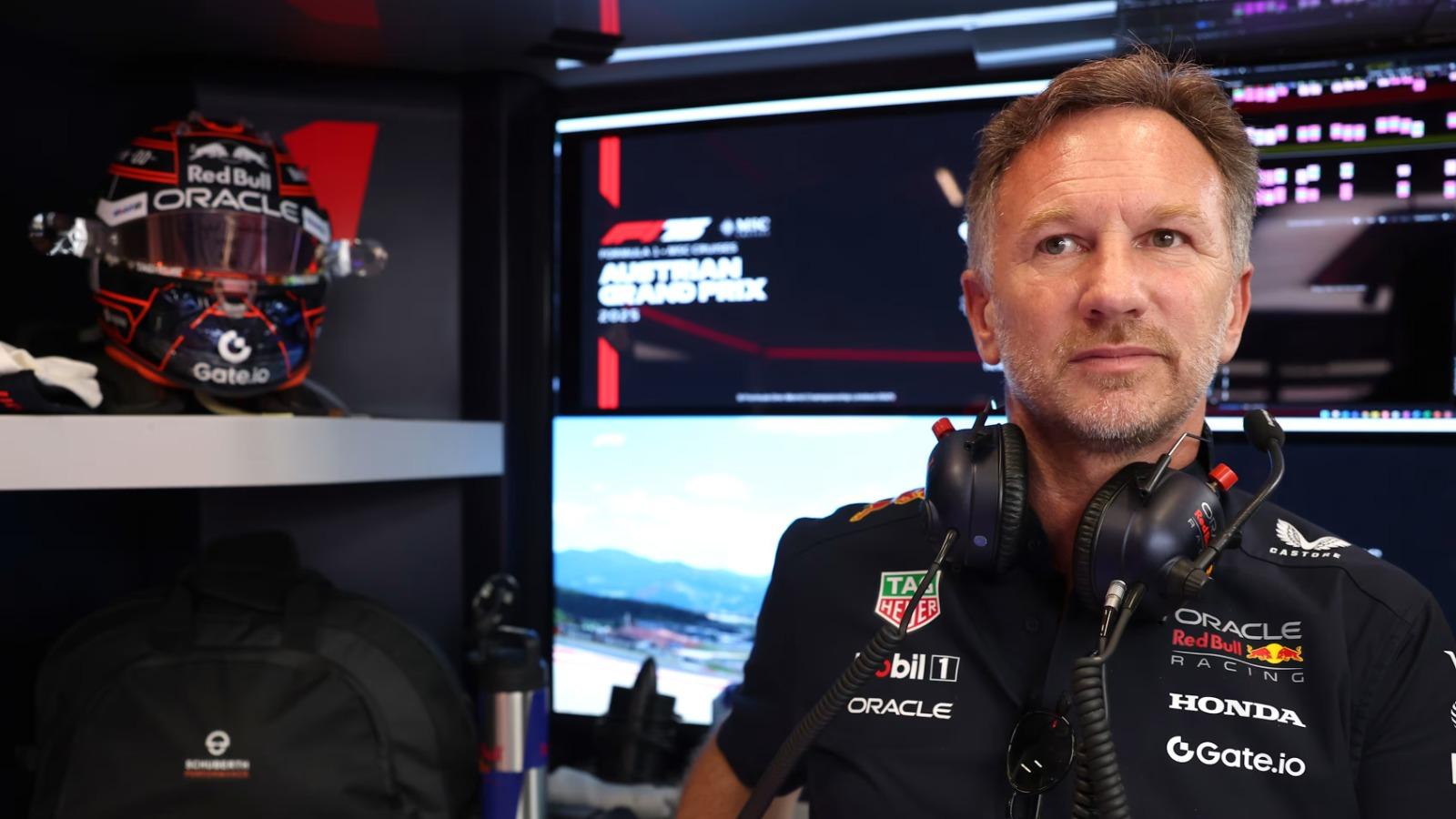Christian Horner’s Red Bull Exit and the Road Ahead in Formula 1
For nearly two decades, Christian Horner was the face of Red Bull Racing. The team principal since its debut in Formula 1 back in 2005, Horner built the outfit from an energy drink marketing experiment into one of the sport’s dominant forces. Under his leadership, Red Bull claimed six Constructors’ Championships, eight Drivers’ titles, and developed a culture of success that rivaled the great dynasties of Ferrari and Mercedes.
But now, a month after his shock dismissal, Red Bull have cut their final ties with Horner, ending his involvement across all branches of the organization. It was a brutal, abrupt conclusion for Formula 1’s longest-serving team boss, but one that had been looming since the death of Red Bull founder Dietrich Mateschitz in 2022.
Horner leaves behind a glittering legacy—but also unfinished business. And as the dust settles, speculation is turning toward where he might land next in the F1 paddock.

The End of the Horner Era
On July 9th, just three days after Max Verstappen fought Oscar Piastri for victory at the British Grand Prix, Red Bull announced that Christian Horner was sacked from his dual role as team principal and CEO. The timing was cruel: barely seven months before Red Bull’s long-awaited debut as a fully-fledged works team, producing its own engines in partnership with Ford.
That project—Red Bull Powertrains—was Horner’s brainchild. Since 2021, he had championed the push for independence, overseeing the construction of a new facility at Milton Keynes and recruiting hundreds of engineers. Next season, the team will finally unveil its first in-house engine. But Horner will not be there to see the fruits of his labor. Instead, it will be Laurent Mekies, formerly of Ferrari, who steers the program toward the grid.
The separation has not only been personal but structural. Even after being removed as team principal, Horner remained on the books as a director of multiple Red Bull UK entities, including Red Bull Racing, Red Bull Technology, and Red Bull Powertrains. That last link has now been severed: new filings at the UK’s Companies House in August confirmed that Horner was terminated from all directorial positions, signaling a complete and final break with the team he built.
It did not come cheaply. Horner was under contract through 2030 on a deal reportedly worth between £9–12 million annually. Factoring in severance and early termination, his exit package is believed to be in the region of £50 million—a golden parachute, but little consolation for a man ousted from the project of his life’s work.
Why Horner Fell
Horner’s dismissal did not happen overnight. His authority began eroding the moment Dietrich Mateschitz, Red Bull’s co-founder and ultimate backer, passed away in October 2022. For 17 years, Mateschitz provided Horner with near-total autonomy, shielding him from corporate politics and giving him free rein to run the team as he saw fit.
That autonomy ended when Red Bull’s empire was divided between three Austrian executives. Among them was Oliver Mintzlaff, formerly the head of RB Leipzig football club. Unlike Mateschitz, Mintzlaff brought little sentiment to Formula 1. He had clashed with Horner years earlier when championing a proposed partnership with Porsche that would have seen the carmaker acquire 50% of Red Bull Racing. Horner, fiercely protective of independence, used his influence with Red Bull’s Thai majority owners to kill the deal—an act that deeply embarrassed Mintzlaff.
With Mateschitz gone, Horner no longer had the protection to brush aside boardroom rivals. Combined with controversies off-track and a perceived stagnation in Red Bull’s performance curve, the case for his removal only strengthened. By mid-2024, his fate was sealed.

What Comes Next for Christian Horner?
Despite his abrupt fall from grace at Red Bull, few in the paddock believe this is the end of Horner’s Formula 1 career. His record speaks for itself: he took a mid-grid team and turned it into a dynasty, attracted top talent, built long-lasting driver programs, and successfully navigated political minefields in F1’s cutthroat environment. Those skills remain invaluable.
Ferrari: The Road Not Taken
For years, Ferrari flirted with the idea of bringing Horner to Maranello. Whenever Ferrari faltered—and they have done so often in the past decade—his name would surface as a dream candidate. Earlier this year, speculation mounted again, with Fred Vasseur’s initial contract due to expire at the end of 2024. Some imagined Horner swapping Red for Rosso Corsa, spearheading Ferrari’s 2026 project under the new engine regulations.
That door has now closed. Vasseur has recently signed an extension, committing his future to Ferrari beyond 2025. With stability restored in Maranello, Horner must look elsewhere.
Alpine: A French Rescue Mission
The most intriguing option lies at Alpine, the Renault-backed team in Enstone. Alpine’s story in recent years has been one of turbulence: frequent leadership changes, underwhelming results, and strategic missteps. Most recently, Renault announced it would shutter its engine program for 2026, instead switching to Mercedes power units. That decision fueled rumors Renault might eventually sell the team altogether, though executives deny it.
Currently, Flavio Briatore—yes, that Flavio Briatore, ex-Benetton boss and perennial paddock powerbroker—has been installed as Alpine’s executive director. While his presence stabilizes the team in the short term, few believe Briatore represents a modern, long-term solution. Ralph Schumacher recently argued that Alpine needs “tech-savvy leadership,” someone capable of managing both the engineering and political demands of F1. Horner, he suggested, would be an ideal fit.
For Horner, Alpine could replicate what he once enjoyed under Mateschitz: relative autonomy to run a team without constant interference. And crucially, Alpine could also provide him something Red Bull never did—ownership.
Ownership Dreams
Throughout his career, Horner often looked enviously at Toto Wolff. The Mercedes team boss not only runs the operation but also owns a one-third stake, giving him financial and strategic control well beyond a salaried role. Horner long aspired to something similar at Red Bull, but the company never granted him equity.
Now, with a hefty payout in his pocket and longstanding relationships with wealthy backers, Horner has the means and the motivation to pursue part-ownership elsewhere. A minority stake in Alpine—perhaps secured through a consortium of investors—would give him the influence and permanence he craved.
It’s a realistic prospect. Formula 1 team valuations have exploded in recent years, with even backmarker outfits like Williams and Haas valued north of $700 million. Investors from the Middle East, North America, and Asia are circling the sport, eager to buy into its growth trajectory. Horner, with his track record, could easily convince a fund to bankroll his re-entry as a shareholder.
Bernie Ecclestone, Horner’s old ally, recently summed it up bluntly: “The position he really wanted at Red Bull was to own part of the team. Unless he gets somebody to put the money up to buy a team, I can’t see it happening.”

Legacy and Outlook
Christian Horner departs Red Bull as the fourth-longest-serving team principal in F1 history. His record includes nurturing Sebastian Vettel to four consecutive world titles, shepherding Max Verstappen into one of the greatest drivers of his generation, and turning Red Bull Racing into an institution respected across the sport.
Yet the manner of his exit leaves a bitter aftertaste. He will watch from the sidelines as Red Bull debut their first self-built engine—an achievement that, in many ways, was his vision. For a man so fiercely tied to the team’s identity, that separation will sting.
Still, Formula 1 is rarely sentimental. It is a sport that rewards reinvention. If Alpine offers him the autonomy and ownership he lacked at Red Bull, Horner could yet script a second act—one that mirrors the first, but on French soil. For Renault, Alpine, and even Formula 1 as a whole, that might be exactly what’s needed.
Conclusion
Christian Horner’s dismissal from Red Bull marks the end of one of Formula 1’s defining partnerships. But it may also be the beginning of a new chapter. With Alpine searching for direction and investors eager to capitalize on the sport’s booming growth, the stage is set for Horner’s return—this time not just as a team principal, but potentially as an owner.
For now, his legacy at Red Bull is secure. But in Formula 1, legacies are never enough. Horner’s next move will determine whether he remains a figure of the past—or whether he can build a new empire to rival the one he left behind.
News
Die Welt hat sich weitergedreht: Marie Fredriksson rechnet leise ab – 5 Stars, die sie im Stich ließen.
Der Klang von Roxette war der Soundtrack einer ganzen Generation. Mit Hits wie „It Must Have Been Love“ und „The…
Conny Froboess: Die bittere Wahrheit hinter der Traumkarriere – Im Alter trägt sie eine unheilbare Wunde.
Der Name Conny Froboess ist in Deutschland untrennbar mit einem Gefühl von Leichtigkeit und sonnigen Kindertagen verbunden. Wenn ihr größter…
DER WACKELDACKEL DER REPUBLIK: WIE MERZ’ „HERBST DER REFORMEN“ IN EINER EISZEIT DER STARRE ENDETE UND UNSERE ZUKUNFT VERPFÄNDET WIRD
Einbruch in die politische Wirklichkeit: Die bittere Bilanz nach dem Versprechen des Aufbruchs Mit großen Versprechungen begann die Zeit, die…
Bommes’ Nerven liegen blank: Unerwarteter Eklat in der letzten Folge von „Gefragt – Gejagt“ schockt die Fans
Ein Augenblick, der das harmonische Ende einer Quiz-Saison sprengte. Ausgerechnet in der vorerst letzten Ausgabe der erfolgreichen ARD-Show „Gefragt –…
Herzschlag-Finale in der Scheune: Friedrich und Laura trotzen dem TV-Kitsch mit dem ehrlichsten Liebesbeweis der Staffel
Der leise Moment, der lauter spricht als jede große Inszenierung Es war der Moment, auf den Millionen von Zuschauern der…
Kai Pflaume bricht sein Schweigen: Das 30-Jahre-Geheimnis hinter Deutschlands Vorzeige-Ehe und warum seine Ilke sein wichtigstes Korrektiv ist
Die deutsche Fernsehlandschaft hat viele Gesichter, aber nur wenige sind so konstant, so sympathisch und so untrennbar mit dem Gefühl…
End of content
No more pages to load












